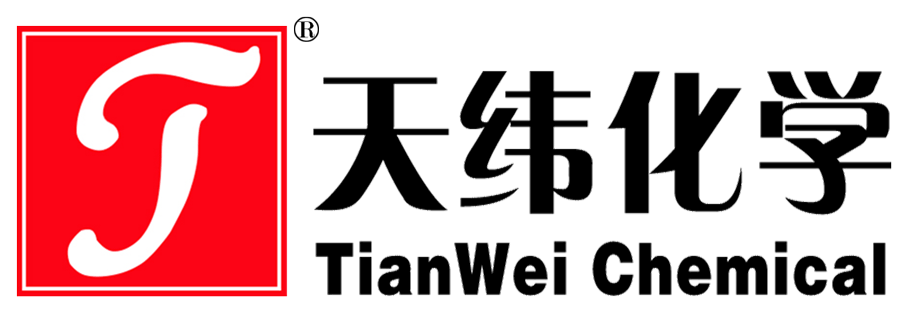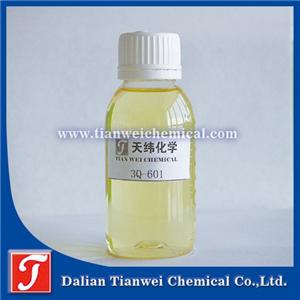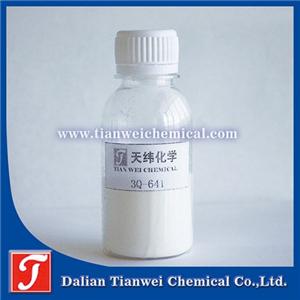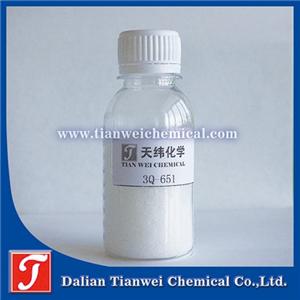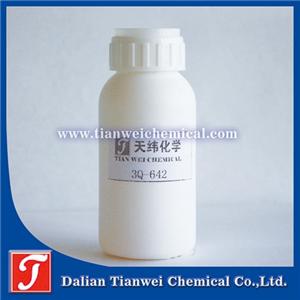Use coolant properly 1
Strategic measures should be taken for the application of coolant, that is, the coolant is used where it is needed, the use of environmentally friendly, safe and polluting plant oil base, and the necessary filtration, to achieve effective energy saving, economic and practical, with various degrees of adjustability, and reduce the setting time.
Time also runs out when it comes to ordering metal working consumables and evaluating and analyzing the coolants and lubricants that remain around the rags. Many companies have realized that producing high-quality products in different ways is essential for business survival.
Choosing the right coolant is not the only consideration for achieving a good cooling effect. If the coolant is not efficiently delivered at the right temperature and pressure, the coolant is not used with the right positioned and shaped nozzles, and the filtration system is not matched to the job being processed, the coolant provided in these cases may not work at all, or may produce worse results.
Technology is not the only challenge for coolant and lubricant suppliers. ITW RocolNorth America, the American lubricants giant, and most other suppliers are under pressure from rising basic inventory costs. This is a dual challenge, namely the lack of oil and the rising price. ITW Rocol North America continues to work closely with its customers to ensure that they are provided with the best solutions that meet their needs. They developed a dual route, providing both traditional splash coolant and coolant with a micro-lubrication (MQL) system.
ITW Rocol North America has developed an Accu-Lube series of organic coolants/vegetable oils for the MQL market for quasi-dry cutting. Due to the many advantages of this vegetable oil, it can solve the inherent problems of water-based coolant in the water tank need to be repaired and the coolant needs to be treated, so the MQL market prospects are very promising. For traditional splash cooling, the company has recently preferred biostable semi-synthetic coolants, such as the Rustlick Ultracut 370R coolant.
Whether to choose splash cooling or MQL depends on the particular machined part. The key issue is whether the liquid can be transported to the part processing area and to what extent the oil mist generated in the working environment can be restricted. If the oil mist contamination is serious, many changes will need to be made for both customers and suppliers who use metal working coolants.
Basic research on coolants
Basic research has always been a research focus of Benz Petroleum, especially the problem of surface chemical properties of lubricants under high pressure conditions. For example, what happens when the tool comes into contact with the workpiece? How to effectively use chlorine, phosphorus and sulfur in the coolant to control the surface finish of the workpiece. There is also a need to quantify how the films form and what causes them to form. The next, and perhaps important, question is to understand how these chemical elements break the bonds between atoms on the surface of the workpiece material in a complex process, such as the bonds between iron atoms, and use controlled splitting to open the surface to push the material away from the workpiece. These chemicals act as a high-speed hydrogen embrittleer, controlling friction by forming a film on the surface of the sliding contact zone.
Basic research is closely related to the production process of coolant, where the contact pressure reaches above Gigabit Pa(GPa), or to a point at which any level of plastic deformation can occur.
Use of vegetable oil
The rising price of oil has become a problem that cannot be ignored in grinding operations. One of the reasons for the tendency to use solvent-refined oil is that it is less sensitive to thermal shock. Thermal stability is very important for any precision grinding operation. The researchers found that under harsh grinding conditions, water-based coolants can cause damage to the workpiece due to thermal stability problems. Water will boil and evaporate on the cutting surface, resulting in the entire system in a dry grinding state. However, customers who prefer to use oil-based coolants must also understand the cause of the oil mist and need to use a higher pressure flow system to remove the oil mist.
Blaser, a Swiss company, sees vegetable oils as a huge market. Vegetable oil is not only environmentally safe, but also improves production efficiency. In one application, Basso engineers saved 30 percent of the production cycle by switching to vegetable oil. They found that the application of vegetable oils in more difficult processing environments can achieve high production benefits. For example, the use of vegetable lubricants in the processing of titanium alloys can achieve higher benefits than processing aluminum. Vegetable oils are polar, a property that allows vegetable oil additives to effectively form a fine, evenly distributed surface layer. Basso's customers have repeatedly praised their ability and benefits in terms of increased productivity, more frequent use and faster processing since they started using plant-based products.
In addition, vegetable oil can be discharged from the machine together with the chips, the quality of the processed parts is better, and the use of 20% to 30% can be saved. This also partially Bridges the cost gap between the use of mineral and vegetable oils. Because if only from the price point of view, the initial use of plant-based cutting coolant, its price per gallon can jump 5 to 9 US dollars, which is a large expense for production enterprises. Another advantage of vegetable oils is that most vegetable oils have a higher flash point than mineral oils, which is obviously safer for those customers who have been using oil products.
Basso has also achieved remarkable results in the research of high-pressure coolant and cutting oil units. They have developed coolants that control foam and gasification, which allows customers to fully enjoy the productivity benefits of high pressure. When selecting the right metalworking coolant for high-pressure applications, water quality, tank size, cycle time, pump configuration, pressure, and coolant delivery through the tool are all important factors to consider.
Coolant filter selection
The coolant filter plays an important role in the performance of the coolant. According to Andy Nelson, Product Application Manager at Masda Chemical, the filter should circulate no more than 10% of the tolerance in the filtered coolant. For example, if the tolerance range is ±0.13 mm, then choose a filter that can reliably remove particles greater than 0.0025 mm to ensure that residual chip scratches or accumulated errors do not affect the tolerance requirements. If a high surface finish is required, then even a small scratch can affect the surface quality and measurement value. And over time, the accumulation of particles on the filter will also occur. Therefore, it is very necessary to remove the accumulated particles in the coolant regularly, because they can cause unnecessary chemical reactions in the coolant, which in turn affects the surface finish.
In grinding, the coolant quickly wets the grinding wheel, turning it into a fast-moving sponge that carries the coolant to the contact arc for cooling and lubrication. The more coolant the grinding wheel can absorb, the better the coolant's ability to reduce parasitic drag. The residue deposited on the grinding wheel also has a great impact on the grinding wheel, so attention must be paid to maintaining the standard size of the grinding wheel, normal dressing and cleaning of the grinding wheel, and removing the tiny particles deposited on the grinding wheel. Some of this residue is a mixture of minerals contained in hard water, and some of it comes from residual oil.
The cations in the residue, especially magnesium and calcium ions, react chemically with the wetting agent in the coolant to produce a soft oily residue that adheres to the surface of the grinding wheel, reducing the ability of the grinding wheel to adsorb the coolant. In addition, this chemical reaction also reduces the content of the wetting agent in the coolant, which affects its ability to effectively wet the grinding wheel. A similar situation can occur if an "excessive" amount of ordinary "theme" anti-foaming agent is added to the coolant, where the main active ingredient is an "oily" substance that is insoluble in water (generally one or more siloxane complex emulsions). These problems can often occur at any time when "hard closed grinding wheels with very small particle size" are used.
Control of oil mist
The amount of mineral oil allowed in the oil mist in the metal processing plant may be subject to change. The American Council of Governmental Scholars on Industrial Hygiene (ACGIH) recommends an oil mist limit of 0.2 mg/m3. Although ACGIH is not a regulatory body, the Occupational Safety and Health Administration (OSHA) accepted their recommendations.
Once this new restriction takes effect, it will certainly affect device manufacturers and end users, and will require significant improvements to devices. This means that more synthetic liquids can be used, requiring better control over the oil mist. In theory, vegetable oils will not be included, so their use could grow.
The preference for vegetable oil processing is due to the increasing price of petroleum and the greater use of high pressure lubricants and lubricants through tools. Vegetable oils have stronger resistance to foam formation, as well as stronger antimicrobial properties and greater biological stability.
The use of high and low magnesium alloys is increasing, especially in the automotive industry, as this material has an excellent strength-to-weight ratio. As a result of this development, other related metal working coolants have been introduced. Magnesium is an active metal that releases hydrogen gas in contact with water, which can easily cause a fire or explosion. Therefore, the coolant used in magnesium alloy processing should prohibit such reactions, which should cause enough attention.
